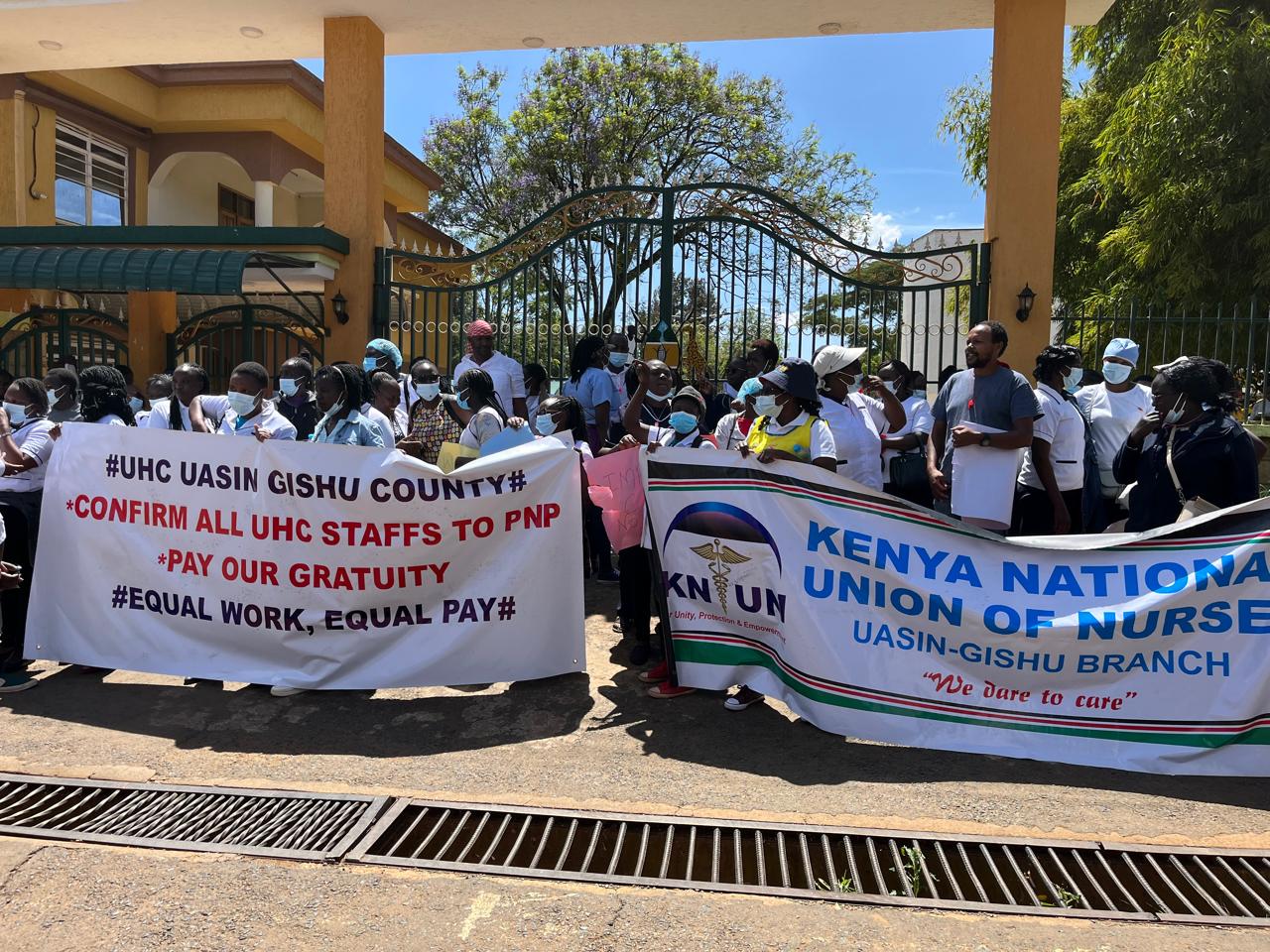A major health crisis is on the horizon after the Kenya National Union of Nurses and Midwives announced plans for a nationwide strike set to begin on July 7, blaming government inaction on a series of unresolved grievances.
Speaking during a press briefing in Nairobi, union secretary general, Seth Panyako said the strike would paralyse nursing services countrywide unless long-standing demands are met within 26 working days.
Panyako expressed frustration over years of neglect by both the national and county governments, saying, “We want to tell the government that we are open to dialogue.
We have been patient since this administration took office and have never downed our tools — but enough is enough.”
The strike will exclude nurses working at Moi Teaching and Referral Hospital for now, as their grievances are under review.
However, Panyako warned they may still join the action if it extends beyond a week, saying, “They cannot serve the entire country alone.”
The union’s list of complaints is extensive. It includes failure to transition UHC nurses from contract to permanent and pensionable terms, delays in implementing the 2024 SRC salary structure, and lack of progress on CBAs with county governments.
Also raised were budget delays to facilities like Mathari Hospital and the government's failure to implement a 2017 Return-to-Work Formula, which the union says is still valid.
The strike notice has been formally issued to key state bodies including the Ministry of Health, Public Service Commission, Ministry of Public Service, Kenyatta National Hospital, and the Social Health Authority.
While the Ministry of Health had earlier committed to resolving some of the concerns, recent developments have cast doubt on that commitment.
On April 1, Health CS Aden Duale promised to sort out UHC-related employment issues within three weeks.
But by May 17, Duale had admitted the ministry lacked sufficient funds to hire the nurses on permanent terms, saying only Sh3.5 billion was available, which can only support contract-based hiring.
Meanwhile, a May 6 announcement by Medical Services PS Dr Ouma Oluga and Council of Governors CEO Mary Mwiti confirmed that UHC payroll responsibilities would be handed over to counties from July 2025.
Many of the nurses recruited under UHC since May 2020 continue to raise complaints about discrimination, lack of job security, missing allowances, and lack of career advancement.
These frustrations have deepened the sense of betrayal among frontline workers who expected permanent roles after risking their lives during the COVID-19 pandemic.
As the country deals with ongoing doctors’ strikes in places like Kiambu, Marsabit and Kakamega, the threat of nurses walking off the job adds more strain to the already fragile healthcare system.
Vulnerable groups including mothers, children, and patients with chronic illnesses could bear the brunt of a nationwide disruption if the government does not act in time.
Panyako said the union remains ready to negotiate but warned that this time, it expects concrete steps. “The ball is in the government’s court,” he said.

